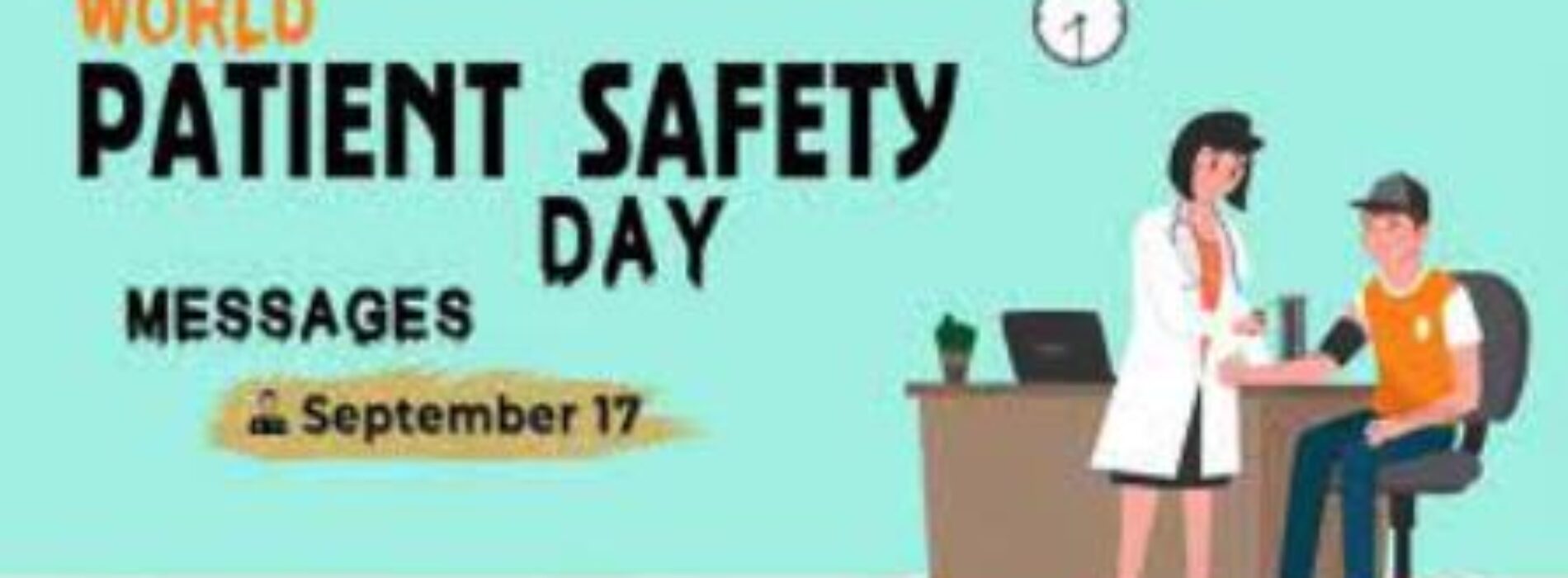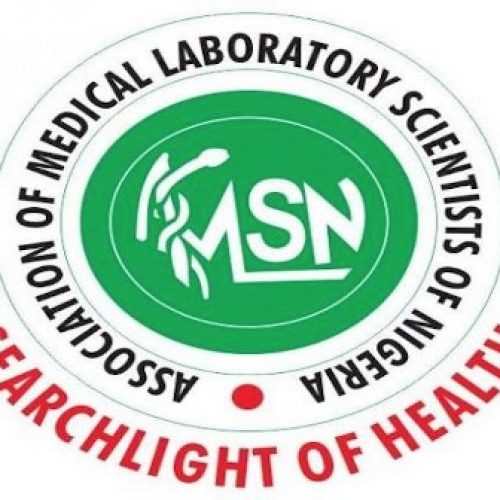World Patients Safety Day: Pharmacist counsels on need to adhere to prescribed medications
-
Identifies unsafe medication practice as cause of avoidable harm in health care system
-
Health minister also warns against self medication
As the World Patients Safety Day 2022 was marked globally on Saturday September 17, a pharmacist, Mrs Mobolaji Aiyenuyo has advised Nigerians to always adhere to their prescribed medications and report cases of adverse drug events to the pharmacist as a way of achieving “Medication without harm,” the theme for this year’s event.
In an exclusive interview with Nigeria Health Online, Aiyenuyo who is the Chief Executive of Pure Life Pharmacy a growing retail pharmacy chains, identified wrong prescribing, wrong dispensing, wrong transcribing and unsafe medication practices as the leading cause of avoidable harm in health care systems in the country saying the theme, “Medication without harm “ aims to proffer solutions to reduce medication-related harm faced by Nigerians.
“Medication without harm campaign emphasizes the need to adopt a system approach and promote safe medication practices to prevent medication errors and reduce medicated related harm,” she said.
Pharm. Aiyenuyo noted that pharmacists are in a unique position to address the challenges related to medicine use by engaging in Pharmaceutical care, drug-focused and patient-focused interventions, patients education on potential side effects likely to occur with their medications, reporting cases of adverse drug events, solving drug therapy problems.
“The Pharmacist ultimate goal is to reduce medication errors, adverse drug events, monitoring and responding to inappropriate poly-pharmacy, reducing harm from high-risk medicines, and improving medication safety at transitions of care,’ she stressed.
The World Patient Safety Day is marked globally on September 17 by the World Health Assembly with the aim of increasing public awareness and engagement, enhancing global understanding, and working towards global solidarity and action by countries and partners to promote safety in health care.
The theme for this year is Medication Safety with the slogan “Medication without harm” amid reports by WHO that the global cost associated with medication errors is estimated at US$42 billion annually.
To mark the Day in Nigeria, WHO in Abuja, on Friday September 16, organised an awareness campaign walk to raise consciousness on medication-related errors and unsafe practices.
Mrs Ade-bimpe Adebiyi, Director of Hospital Services, Ministry of Health, who represented the Minister of Health, Dr Osagie Ehanire, said that the walk was organised to sensitise the public on the dangers of medication errors and unsafe practices.
Ehanire cautioned Nigerians against self-medications, adding, ”such acts can cause incorrect self-diagnosis and delays in seeking medical advice when needed.
”In the same vein, there are usually severe adverse reactions as well as dangerous drug interactions, among other effects.
Ehanire said that the country has regulatory bodies that handle issues of malpractice on health matters.
According to him, any case that was reported to the agencies would be sanctioned according to the law.
“We are using this walk to sensitise the entire populace, that it is not enough for one to have headache and go to buy paracetamol from the pharmacy.
“The person needs to visit the hospital to see a qualified doctor that will examine him and prescribe the right drugs,” he said.
Mr Edi Idem, Patients’ Safety Ambassador, Patient Safety Movement Foundation said that the it was currently drafting the policy on patients’ safety for Nigeria and worldwide.
Idem said that the issue of medication error had taken centre stage, particularly as the year focused on medication.
According to him, in a country like Nigeria where people can buy over the counter drugs, such obnoxious habit must be discouraged.
“We need to educate Nigerians on the dangers inherent in this kind of practice.
“You need to know the drugs you are consuming, the consequences of these drugs.
“We need to empower patients, individual families, so that they can ask the right questions.
“So, today WHO wants to raise awareness globally, not only in our country, but across the world,” Idem said.
According to him, the Bill of Rights for question was one thing, but a policy was needed to drive the action of regulators, government, individuals and stakeholders.
Idem said, ”WHO would participate to ensure that for every medication that one takes, anywhere in this country, there are rules or regulations guiding it.
“The bill emphasises on the role of the various stakeholders, government, individuals and families.
“We empower them in terms of increasing their knowledge and also empower them in terms of funding for certain aspects of mutations.”
Additional report by NAN






0 Comments
No Comments Yet!
You can be first to comment this post!